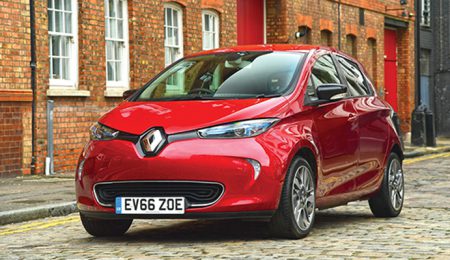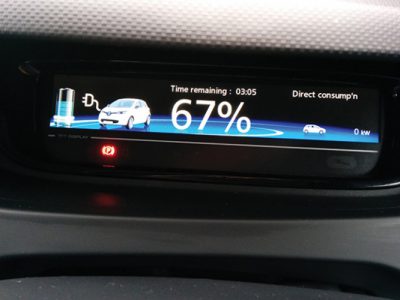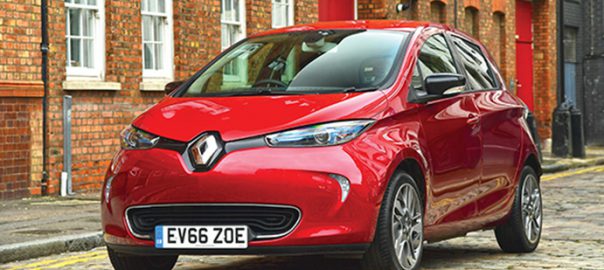Renault has almost doubled the battery capacity of its electric supermini, the Zoe. Chris Pickering puts it to the test
Could it be that the electric car has finally come of age? Stepping into the new Renault Zoe Z.E. 40 I would be inclined to argue it has. In some respects, this unassuming little car might seem like an underwhelming choice to back up that claim. After all, it takes more than four times as long to crack the 0-to-60mph sprint as the Tesla Model X we featured last month.
If you look at what‘s kept drivers from going electric in the past, though, the Zoe now ticks an awful lot of boxes. Renault has virtually doubled its range with the launch of this new 41kWh version, which is good for 250 miles on the NEDC test cycle. That’s said to equate to around 186 miles of real-world driving in good conditions – nearly 20 times the length of the average British commute.

This extended range has been achieved without changing the physical dimensions of the battery and with only a 15kg weight increase. It still contains 192 cells arranged in 12 modules, but battery developer LG Chem has managed to pack more active materials into each one. Meanwhile, the surface area of the electrodes has been increased by some 10 per cent and a new cooling system aims to ensure more consistent performance across the temperature range.
The next obstacle has traditionally been cost, but while the Zoe is somewhat pricier than a conventional supermini it’s an order of magnitude cheaper than offerings from companies such as Tesla. Starting at £23,445 (including the government’s Plug-in Car Grant) the 41kWh version is comparable to a well-specified Ford Focus.
That said, over 90 per cent of buyers choose to lease the battery separately (priced at between £59 and £110 a month, depending on the mileage), which drops the purchase price to £17,845. Opt for the entry-level 22kWh version and that figure falls to just £13,995.

Finally, the Zoe comes with a clever onboard charging system, dubbed the Chameleon. This means it can draw the maximum power from virtually any charging point, including the 43kW fast chargers that are increasingly found in motorway service stations. As a result, the Q90 version – more on that in a minute – can fill 80 per cent of its battery in just over an hour. Renault even includes a fully installed 7kW Chargemaster home-charging system with each car.
Read more: The Engineer
